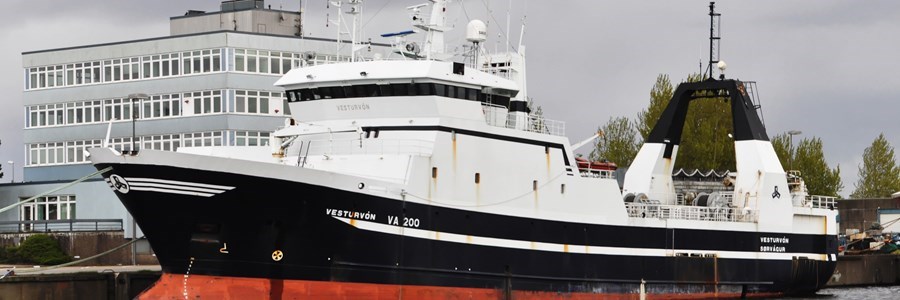Europêche exhorte la Commission européenne à promouvoir la politique de pêche profonde en conformité avec les normes internationales

Les membres d'Europêche ont rencontré aujourd'hui le directeur général de la DG MARE, Joao Aguiar Machado afin d'exprimer leurs préoccupations au sujet des négociations en cours concernant les restrictions possibles sur le chalutage de fond en mer profonde. Cela pourrait être l'avènement d'une interdiction de 800m, même pour les zones déjà réglementées dans les eaux internationales.
The members of Europêche explained that the Commission proposal would contradict the policy that the EU has followed for over 10 years internationally in the UN, FAO and RFMOs, that provides absolutely no fishing ban below 800 metres. It would also undermine the legitimacy of RFMO measures, greatly supported by the EU, to minimise the impacts of bottom-fishing on vulnerable marine ecosystems (VMEs) and would not offer any additional protection in international waters off the North-East Atlantic since bottom fishing only currently takes place in 3% of this area. Europêche support measures already in place in the NEAFC regulated area, such as freezing the footprint of deep sea activities (restricting operations to areas that are already fished), the move on rule when encountering VMEs and temporal and spatial closures. These measures protect VMEs, increase cooperation between the industry and scientists and help create a level playing field for deep-sea fishing.
President of Europêche, Javier Garat stated that the proposal would create an unlevel playing field, warning: "If we include non-EU waters in the scope, the EU would still continue to import deep sea fish products caught by third countries not under the ban, which would be discriminatory and inconsistent with what the EU is trying to promote. Similarly, it would be perfectly legal for an EU consumer to continue to buy an imported fish product caught by a deep-sea vessel from a third country. Non-EU vessels in those waters would have the opportunity to increase their pressure on deep sea stocks, leading to increased pressure outside of the EU's control. The EU has catastrophically failed in trying to export their stringent measures to RFMOs where other countries do not accept them and prefer more workable , rational legislation."
Additionally, the fishing body believe that the proposed ban of 800m is an arbitrary figure since it has no scientific basis and it would be irresponsible to base complex fisheries legislation on anything but sound science, especially when the results cause such a huge impact to fishermen. Furthermore, alternative fishing methods are not possible for many EU vessels and in many cases the target species (such as angler fish) cannot be caught in commercial quantities with gears such as long-lining. A depth ban would also stop fishing activities in many areas that do not have VMEs and would increase fishing pressure in other areas through the displacement of vessels into less fished areas. Therefore, the proposal would forgo making use of what is inherently a renewable food source, and one of the most sustainable forms of food production on the planet.
ENDS
Europêche represents the fisheries sector in Europe. Currently, the Association comprises 14 national organisations of fishing enterprises from the following 9 EU Member States: DE, DK, ES, FR, IT, MT, NL, PL, UK.
Press contacts:Kathryn Stack, Managing Director of Europêche: +32.2.230.48.48 kathryn.stack@europeche
Sources: Europeche
Attachments:
Tags: mer profonde, CPANE, Commission européenne, VME, interdiction, garat, dg mare, Machado, chalutage de fond, chalut de fond